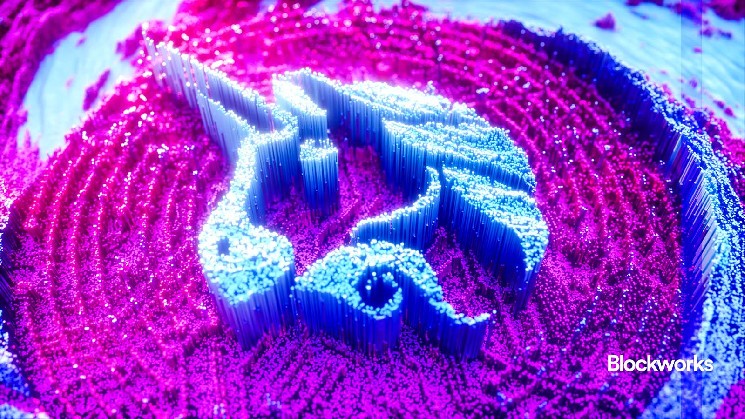The DAO dilemma: Striving for decentralization

This is a segment from the 0xResearch newsletter. To read full editions, subscribe.
The idea of a decentralized autonomous organization (DAO) is kind of incredible, when you really think about it.
What is a DAO?
A DAO is like a private company that is perfectly okay with hundreds of token (equity) holders debating publicly on an open forum about product and organizational strategy.
A private company where the core security underlying the company’s product (smart contracts) are fully viewable, where all the data you need to write a scathing data analysis on a company you don’t like is readily available.
In the non-Web3 world, markets would kill to have any clue as to what their competitors are thinking of launching, let alone detailed forum discussions of how that conversation is taking shape. Having all that information out in the open would invite endless media and regulatory scrutiny, taking precious time away from actually building to fend off annoying lines of inquiry.
These are handicaps that no startup wants. And yet in Web3, $21.4 billion of value rests on these norms. In Web3, it’s par for the course.
Of course, most DAOs are actually only partially decentralized.
When Uniswap announced its plans around Unichain last month, Stanford Blockchain Club’s head of governance Billy Gao said the announcement left most DAO delegates “in the dark,” and excluded them via their lack of “a voice at any stage of the process — whether through forums, private discussions or any other means.”
Loading Tweet..
It’s not just Uniswap either. Optimism DAO’s governance contracts are not controlled by its tokenholders, so voting with OP largely serves as an informal signal to the Optimism Foundation (for now).
And it’s widely known that most DAO treasuries or smart contracts are still controlled by a few trusted stakeholders via a multisig wallet.
So when we tout DAOs as decentralized autonomous organizations, in truth, there are many shades of gray within that spectrum of decentralization. The devil’s in the details.
When I asked Tally founder and CEO Dennison Bertram about it, he begrudgingly agreed that DAOs have a ways to go regarding decentralization, but also that partial transparency is still better than complete opaqueness, which would be “much more dangerous.”
Bertram pointed to how Twitter/X under Elon Musk could unilaterally turn off its API, or how Facebook choked off the wildly popular FarmVille game by Zynga from its platform.
Yet, despite the many shortcomings around DAOs, the real silver lining — I think — is the industry’s overarching commitment to the values of decentralization, which to me seems wildly underrated.
DAOs can hand-wave and virtue signal about decentralizing all they like, but the fact that they operate in an industry where “decentralization” is still held up as a beloved virtue is what allows the crypto industry to call out and question the centralization vectors that DAOs are still riddled with.
That informal institution has slowly been eroded and will only continue to do so as crypto continues to go “mainstream.” Cherish it while it still lasts.





 Bitcoin
Bitcoin  Ethereum
Ethereum  Tether
Tether  Dogecoin
Dogecoin  USDC
USDC  Cardano
Cardano  TRON
TRON  Chainlink
Chainlink  Stellar
Stellar  Hedera
Hedera  Bitcoin Cash
Bitcoin Cash  LEO Token
LEO Token  Litecoin
Litecoin  Cronos
Cronos  Ethereum Classic
Ethereum Classic  Monero
Monero  Dai
Dai  Algorand
Algorand  OKB
OKB  Cosmos Hub
Cosmos Hub  Stacks
Stacks  Theta Network
Theta Network  Gate
Gate  Maker
Maker  KuCoin
KuCoin  Tezos
Tezos  IOTA
IOTA  NEO
NEO  Polygon
Polygon  Zcash
Zcash  Synthetix Network
Synthetix Network  Tether Gold
Tether Gold  TrueUSD
TrueUSD  Dash
Dash  Holo
Holo  Zilliqa
Zilliqa  0x Protocol
0x Protocol  Enjin Coin
Enjin Coin  Qtum
Qtum  Basic Attention
Basic Attention  Siacoin
Siacoin  Ravencoin
Ravencoin  Bitcoin Gold
Bitcoin Gold  Decred
Decred  NEM
NEM  DigiByte
DigiByte  Ontology
Ontology  Nano
Nano  Status
Status  Hive
Hive  Huobi
Huobi  Lisk
Lisk  Waves
Waves  Numeraire
Numeraire  Steem
Steem  Pax Dollar
Pax Dollar  BUSD
BUSD  OMG Network
OMG Network  Ren
Ren  Bitcoin Diamond
Bitcoin Diamond  Bytom
Bytom